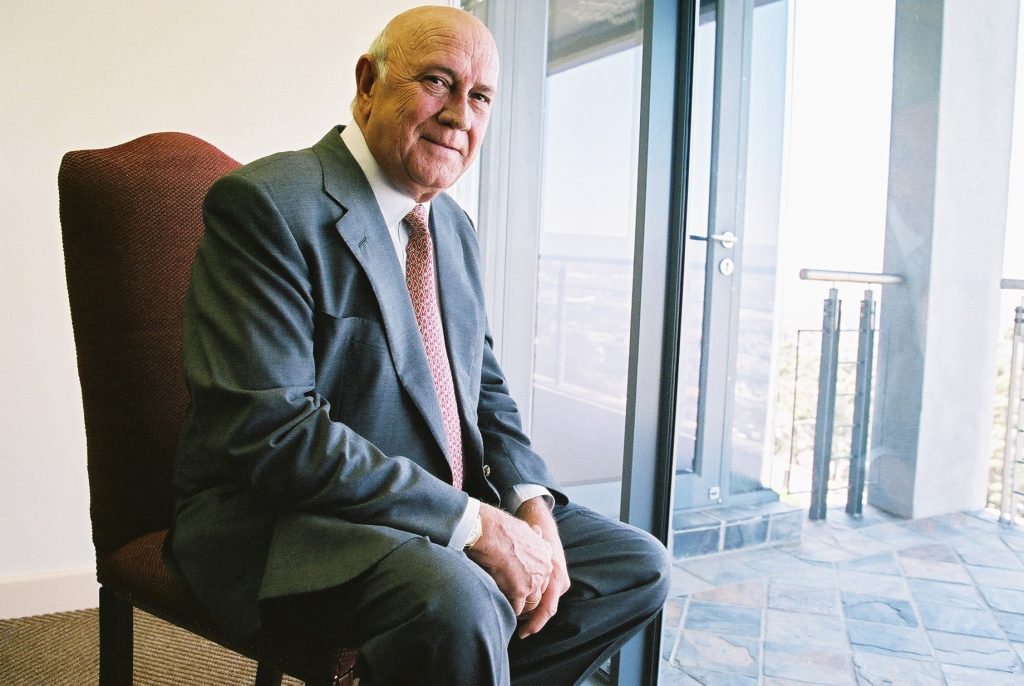South Africa’s former President FW de Klerk who was in power during the last apartheid has died at age 85 after a battle with cancer. He was the last white president of South Africa.

Mr FW de Klerk died earlier today 11th November 2021, in Capet Town after an extended period of illness.
He is the man who also freed Nelson Mandela from prison and paved way for transition from an apartheid system to a democratic state in South Africa.
“It is with the deepest sadness that the FW de Klerk Foundation must announce that former President FW de Klerk died peacefully at his home in Fresnaye earlier this morning following his struggle against mesothelioma cancer. Mr De Klerk was 85 years old. He is survived by his wife Elita, his children Jan and Susan and his grandchildren,” said the statement.
In 1993 Mr De Klerk shared the Nobel Peace Prize with Mr Mandela with whom he worked to fully dismantle the apartheid regime.
In a message of condolence to Elita De Klerk, the wife of the late former President FW de Klerk, South Africa’s President Cyril Ramaphosa said he had “learned with great sadness of the passing of former Deputy President and former State President Frederik Willem “FW” de Klerk.”
“I offer my sincerest condolences to his wife, Elita, his children Jan and Susan, and his grandchildren,” Mr Ramaphosa said. “My thoughts are also with Mr de Klerk’s friends and associates and the management and staff of the FW de Klerk Foundation.”
President Ramaphosa said while de Klerk was a leader of a party that was “vastly discredited” in relation of the role the party played in enforcing apartheid, he played a vital role in South Africa’s transition to democracy in the 1990s, which originated from his first meeting in 1989 with President Nelson Mandela who was a political prisoner at that stage, SA Government News Agency reported.
“He took the courageous decision to unban political parties, release political prisoners and enter into negotiations with the liberation movement amid severe pressure to the contrary from many in his political constituency,” Mr Ramaphosa said.
He described the late de Klerk as “a committed South African who embraced the democratic constitutional dispensation and placed the long-term future of the country ahead of narrow political interests.”
Sources: fwdeklerk.org and SA Government News Agency
